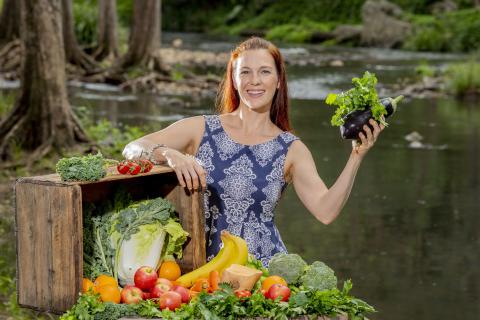
The rising cost of living is putting healthy food out of reach for more Australian families and it’s time the government stepped in, or we’ll all be worse off.
New research released this week showed that the cost of grocery staples continues to rise and that includes basic building blocks of a healthy diet for those on lower incomes including tinned and frozen vegetables and tinned fish.
As a nutritional psychiatry researcher, I know how important fresh and nutritious foods are for not only physical health but mental health as well. In my research I found that the foods that help keep our bodies healthy also help prevent mental health conditions like depression and anxiety. In essence, good food makes us feel good.
But it’s really easy for me as a researcher to tell people ‘eat these healthy foods’. Often those foods – fresh fruit, vegetables, nuts and seeds – are those that are most expensive at the supermarket.
Some people simply cannot afford these ‘good’ foods we are telling them the evidence shows they should eat. When you’re on a tight budget alternatives like frozen and tinned foods are just as good, if not even better, from a nutritional standpoint and they are often much more accessible.
That’s why it worries me to see prices going up for those foods as the cost of living continues to rise. I fear if people on lower incomes are forced to reduce their reliance on these healthy products this could exacerbate physical and mental health problems.
Take healthcare costs – the potential preventative effects against conditions such as heart disease and diabetes of people having a healthy diet are well known. These are illnesses that come with some of the biggest costs to our health system. In my research I also discovered that eating nutrient dense foods can have a protective effect against mental health conditions such as depression – another condition for which healthcare costs continue to grow.
In practice, we only need to look to the Mediterranean. People there spend twice as much as we do on groceries, with the bulk of their shop made up of fresh fruit, vegetables and lean meat. But as a society their healthcare costs are about half of ours.
When food insecurity is a problem, you’re more likely to spend a dollar on a high calorie snack or drink than you are to buy more fruit and vegetables. These are the choices people will make.
But the problem isn’t individuals and the burden shouldn’t be placed on society’s already vulnerable. So often we are sold the line that people ‘just need to make better food choices’ but in practice that’s a lot harder than it sounds when the budget simply won’t stretch.
This issue is one of people being trapped in a system that prevents them from having affordable choices when it comes to healthy food.
We're all fed a barrage of constant messages advertising low priced ultra processed foods that are actually very bad for us. When foods that are actually healthy are far more expensive – what choice are consumers supposed to make?
That’s why I think it’s time for an intervention. We need the government to step in and significantly tax these ultra-processed foods and offset the costs of the healthy ones.
Farmers and food producers deserve to make a decent living and everyone in our community deserves the choice to eat healthy and stay well, no matter their budget.
Dr Megan Lee has a PhD in Nutritional Psychiatry and is a Senior Teaching Fellow at Bond University

